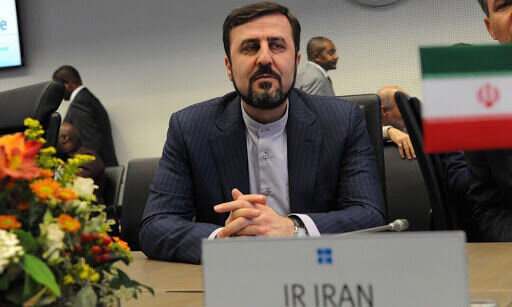U.S. sanctions hinder fight against coronavirus: ambassador

TEHRAN — Iran’s ambassador and permanent representative to the Vienna-based international organizations has criticized the United States’ unilateral sanctions on Iran and some other countries, saying the sanctions have negatively impacted the Islamic Republic’s ability to fight the coronavirus outbreak.
“We still witness the use of unilateral sanctions against countries in clear violation of the goals and principles of the UN Charter, international law and human rights as well as the principles of multilateralism and the norms of diplomacy and international relations,” Press TV quoted Kazem Gharibabadi as saying.
He made the remarks in an address to the 48th Session of the UNIDO Industrial Development Board, which was held virtually on Monday.
Gharibabadi said the fight against the coronavirus requires a comprehensive and coordinated multilateral approach that supports the vulnerable countries.
“We express our deep concern about the serious consequences of the coronavirus for many developing countries, including those that are vulnerable and face serious challenges beyond their control,” he added.
The ambassador said Iran strongly believes that now is the critical time for cooperation and communication not only on the basis of shared responsibility, but also through a decisive joint action as an international community.
Gharibabadi also urged UNIDO to increase its cooperation with other agencies of the world body to ensure the affected countries’ continued access to medical equipment as well as fair production and distribution of vaccines.
UN experts have confirmed that U.S. sanctions impinged on many countries’ abilities to combat the Covid-19 pandemic.
“People in countries under sanctions cannot protect themselves against COVID-19 or get life-saving treatment if they fall ill because humanitarian exemptions to the sanctions are not working,” UN human rights experts said in a report on August 7, 2020.
“Sanctions are bringing suffering and death in countries like Cuba, Iran, Sudan, Syria, Venezuela and Yemen,” said Alena Douhan, special rapporteur on the negative impact of unilateral coercive measures on the enjoyment of human rights.
“Sanctions should be lifted – or at a minimum eased – so people can get basics like soap and disinfectants to stay healthy, and so that hospitals can get ventilators and other equipment to keep people alive.”
Washington has claimed on many occasions that its sanctions on Iran do not include the humanitarian trade. And in fact, the U.S. even sought to portray itself as the facilitator of this trade by launching a humanitarian trade channel in collaboration with Switzerland.
In reality, however, firms and individuals involved in humanitarian trade have chosen to avoid dealing with Iran out of fear of running afoul of U.S. secondary sanctions. Besides, the U.S. has set up a cumbersome process for the issuance of licenses for delivery of humanitarian goods.
Iran’s Foreign Ministry said in a tweet last month that coronavirus has been a deadly disease everywhere but it is worse in Iran due to U.S. sanctions.
“Corona's proven deadly, vicious & brutal everywhere, but it's worse in Iran as it has a cruel collaborator: U.S. regime,” tweeted the Foreign Ministry.
“U.S. has elevated maximum pressure to Health Terrorism & targeted Iranian people with inhuman sanctions while they're fighting the pandemic. We'll overcome but NEVER forget,” it added.
MH/PA
Leave a Comment